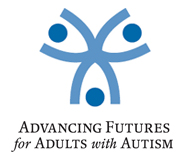Why bother learning penmanship?
by Beth Finke
I was 26 years old when I lost my sight. Authorities set me up at a residential facility to learn how to use a white cane, read Braille, that sort of thing. All the students there were adults, all of us had recently lost our sight.
Well, almost all of us. There were two 18-year-olds there who had been blind their entire lives. They already knew Braille, and they were well trained in orientation and mobility. One thing they’d never learned in school? How to write with a pen. These two young women wanted to go to college, and in order to live independently, write out rent checks and so on, they needed to learn penmanship.
This past Monday a post on a blog called ParentDish called attention to a report in the latest edition of the journal Neurology that shows a high percentage of children with autism struggle when it comes to putting pen to paper. From the ParentDish blog post:
Barbara Wagner enrolled her 14-year-old son Austin in the study conducted by by the Kennedy Krieger Institute in Baltimore. She said she knew there was something different about the way he wrote.
Homework assignments that involved writing sometimes took up to three hours to complete, she said on National Public Radio.
“He doesn’t actually write they way you or I would write,” she told NPR. “He draws his letters. It was almost painful to watch.”
The blog post was quick to point out that plenty of children with autism have fine penmanship, but parents of children who struggle with handwriting might find this study as a valuable tool when requesting that schools let their children with autism use a keyboard instead of forcing them to write by hand.
For those that do, Wagner said, the study provides a valuable tool. Parents sometimes find themselves in conflict with schools when they request keyboard writing and do not see penmanship as a priority.
When educators disagree, Wagner told ABC News, “I think it’s important to have something to back you up.”
It all makes me wonder. How important is handwriting these days anyway? Those 18-year-olds I met at the facility for the blind decades ago struggled so much to learn handwriting — today, they’d most likely pay their bills online. I can see the importance of learning to sign your name in ink, but beyond that — really — is penmanship necessary anymore?







 This time of year, I find myself reflecting on what I am most thankful for. I have so many things in my life that have truly blessed me, but one of the most amazing blessings is having an autistic son.
This time of year, I find myself reflecting on what I am most thankful for. I have so many things in my life that have truly blessed me, but one of the most amazing blessings is having an autistic son. This Friday (November 13), Americans in 15 cities will come together to create a policy agenda for addressing the needs of adults with autism. These needs include housing, jobs, recreation, friends and supportive communities. You’re invited to join us to create a policy agenda for addressing the needs of adults with autism!
This Friday (November 13), Americans in 15 cities will come together to create a policy agenda for addressing the needs of adults with autism. These needs include housing, jobs, recreation, friends and supportive communities. You’re invited to join us to create a policy agenda for addressing the needs of adults with autism!